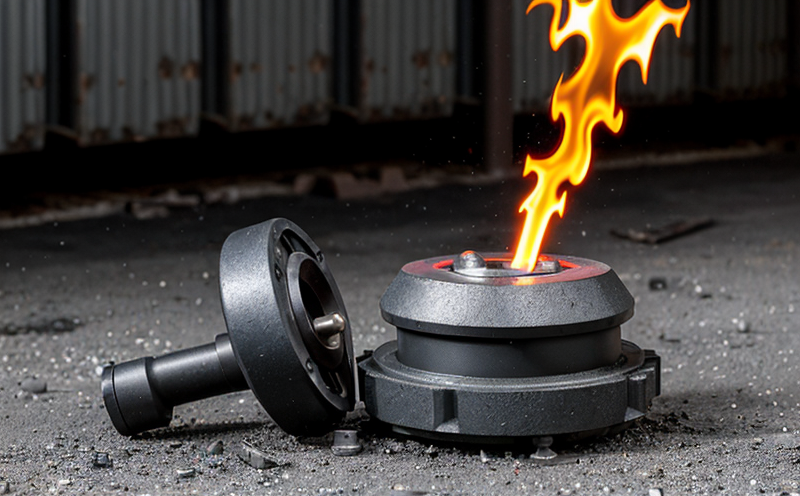Testing devices designed for harsh industrial environments for shock resistance and durability
Ensuring Industrial Devices withstand Harsh Environments The Importance of Shock Resistance and Durability Testing
In the world of industry and manufacturing, devices are subjected to a wide range of conditions that can impact their performance, reliability, and longevity. From extreme temperatures to vibrations and impacts, industrial equipment is often pushed to its limits, requiring manufacturers to ensure that their products can withstand these harsh environments. This is where shock resistance and durability testing comes into play a crucial laboratory service provided by Eurolab, designed to evaluate the resilience of devices in challenging industrial settings.
The Importance of Shock Resistance and Durability Testing
In todays fast-paced industrial landscape, device manufacturers face increasing pressure to produce products that meet the demands of their customers while also ensuring safety, efficiency, and cost-effectiveness. However, without thorough testing, devices can be susceptible to damage or failure when exposed to harsh environments, resulting in costly downtime, repair, or even replacement.
Shock resistance and durability testing is essential for several reasons
Ensures Device Reliability By simulating real-world conditions, manufacturers can identify potential weaknesses and improve device design, reducing the likelihood of premature failure.
Reduces Downtime and Costs A reliable device minimizes downtime, saving companies time, money, and resources that would be spent on maintenance, repair, or replacement.
Enhances Safety Devices designed to withstand harsh environments can reduce the risk of accidents, injuries, or even fatalities.
Benefits of Using Eurolabs Shock Resistance and Durability Testing Services
Eurolabs laboratory service offers a comprehensive range of benefits for businesses, including
Customized Testing Solutions Eurolab provides tailored testing programs to meet specific industry requirements, ensuring that devices are evaluated in conditions most relevant to their intended use.
Advanced Equipment and Expertise Our state-of-the-art facilities and experienced technicians enable precise and accurate results, giving manufacturers confidence in their products performance.
Compliance with Industry Standards Eurolabs testing services ensure compliance with international standards, such as IEC, EN, and MIL-STD, reducing the risk of product rejection or liability issues.
Accelerated Development Cycles By identifying potential weaknesses early on, manufacturers can make informed design decisions, streamlining development processes and getting products to market faster.
QA Section
What types of devices can be tested for shock resistance and durability?
Eurolabs laboratory service caters to a wide range of industrial equipment, including but not limited to
Electronic components and assemblies
Mechanical parts and systems
Communication devices and networks
Medical devices and equipment
Aerospace and defense-related products
How does Eurolabs testing service ensure device reliability?
Our team of experienced technicians utilizes advanced equipment and rigorous testing protocols to simulate real-world conditions, identifying potential weaknesses and vulnerabilities. This enables manufacturers to design and develop more reliable devices that can withstand harsh environments.
What are the typical applications for shock resistance and durability testing?
Eurolabs services are utilized across various industries, including
Aerospace
Automotive
Energy and Utilities
Industrial Automation
Medical Devices
Can Eurolab provide customized testing solutions to meet specific industry requirements?
Yes. Our laboratory service offers tailored testing programs that cater to the unique needs of each manufacturer, ensuring that devices are evaluated in conditions most relevant to their intended use.
By partnering with Eurolab for shock resistance and durability testing, businesses can ensure their products reliability, safety, and performance even in the most demanding industrial environments.
-
Testing the physical durability of meters and measurement devices under mechanical stress
-
Verifying the robustness of devices when subjected to bumps, drops, and impacts
-
Assessing the device's ability to function correctly after being exposed to rough handling
-
Testing for physical damage, such as cracks or breakage, in the outer casing and display
-
Evaluating the resilience of moving parts and mechanical components in meters
-
Ensuring that the device maintains functionality under high-stress conditions
-
Assessing the long-term wear and tear of the device from repeated use
-
Verifying that the meter's housing can protect the internal components from damage
-
Testing for water ingress, dust, and foreign objects in the device casing
-
Verifying that buttons, knobs, or switches remain functional after extended mechanical stress
-
Evaluating the reliability of the device's connectors, cables, and ports over time
-
Assessing the durability of the display screen under mechanical forces like pressure or scratching
-
Ensuring that the device can withstand mechanical vibrations and rough transportation
-
Testing for degradation of the device casing due to exposure to chemicals or solvents
-
Evaluating the device's performance in real-world conditions, including physical shocks
-
Ensuring the mechanical design of the meter can withstand user errors or accidental misuse
-
Testing for reliability when the device is subjected to thermal cycling and rapid temperature changes
-
Verifying the robustness of connectors and cables used in industrial applications
-
Assessing how well the meter withstands high-impact environments like construction sites
-
Ensuring the device can function without major damage when dropped or exposed to heavy impact
-
Evaluating the impact on the meter’s accuracy when subjected to significant physical stress




